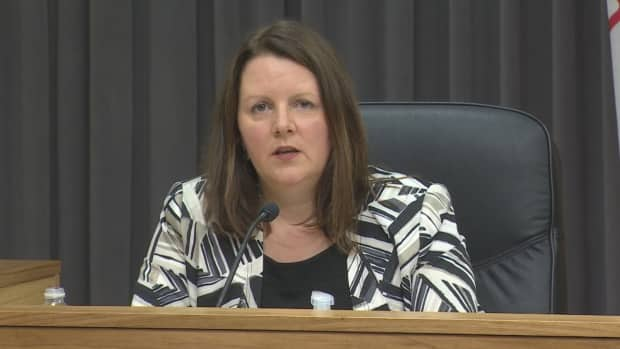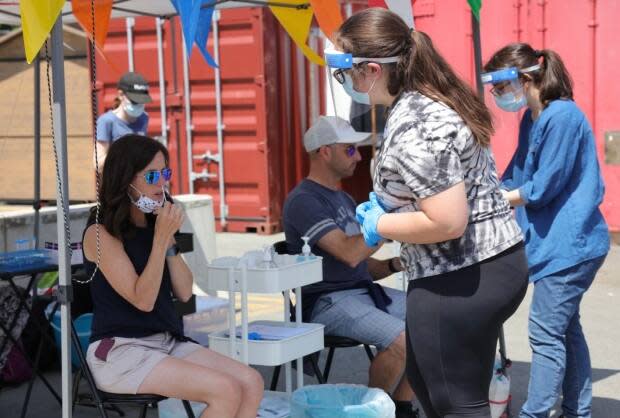Health authority, province ramping up COVID-19 testing capacity amid surge in cases

A day after New Brunswick's top doctor said testing centres were "backed up," officials with Horizon Health Network and the Department of Health say they're working to meet a jump in demand for COVID-19 tests.
Horizon's vice-president of community Jean Daigle said the health authority has seen an increased demand in testing in the wake of the recent spike in cases of COVID-19 in the province.
"We are currently in the process of scaling up our assessment centre operations and staffing resources in response to the increased demand for testing," Daigle wrote in an emailed statement.
"We ask everyone to please be patient as our teams across the province work diligently to ensure everyone requiring a test is seen."
New Brunswick Public Health announced 63 new cases of COVID-19 in the province on Wednesday, the largest single-day increase since the start of the pandemic. Chief Medical Officer of Health Dr. Jennifer Russell warned the province is on track to record 100 new cases a day.
Another 51 new cases were reported on Thursday.
Daigle said Horizon is prioritizing urgent requests, such as those from people who are close contacts of confirmed cases, and those who are symptomatic.
"Urgent requests will be booked within 24 hours while others may wait up to 72 hours to receive an appointment."
Test centres 'a little bit behind': Russell
The plea for patience comes after Russell said Wednesday that staff in charge of booking appointments and conducting tests were backed up with requests.
"From the contact tracing teams, et cetera, the assessment centre staff and also the people that are booking appointments for testing, we are a little bit behind. We are backed up," Russell said.

She said staff are also finding that people who have requested tests aren't answering their phones, and advised that they answer even if it shows up as "private number or unknown caller or PNB."
Bruce Macfarlane, spokesperson for the Department of Health, said in an email that the department is working with regional health authorities to address the increased demand for COVID-19 testing.
"With the recent uptick in the number of confirmed COVID-19, there is a greater demand in testing requests," he said.
Quick test turnaround important for curbing cases: epidemiologist
A Halifax-based epidemiologist said it's no surprise that requests for testing have gone up since cases started spiking.
Kevin Wilson said it's crucial for New Brunswick to meet that demand in a timely fashion if it hopes to bring the number of new cases back down.

"So one of the key measures now that all the public health restrictions have expired... is that kind of passive, less intrusive measures, like the testing, contact tracing and isolating, and to fight infections," he said.
"And so having the ability to identify a case very quickly and then get to their contacts and test them with a rapid turnaround time is very important. The faster you can make that process go, the more successful it's going to be."
Wilson said another tool New Brunswick could use to help bring cases back down is rapid testing, which Nova Scotia used to help fight the third wave of the pandemic.
Rapid testing in Nova Scotia is meant for asymptomatic people 16 and older who have not travelled, been to a potential exposure location or been in contact with someone who has tested positive.

By setting up clinics and letting people come in and get tested, the province says it was able to identify 20 per cent of cases during its third wave.
"It's just a way of plucking cases that are currently circulating in the community out of the community so that they don't infect anyone else," Wilson said, adding that he doesn't understand why more provinces don't take advantage of the relatively cheap and quick method of testing.

